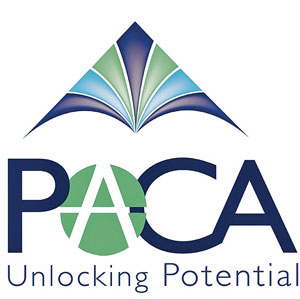Science: Unlocking Potential
Dr Caroline Oprandi Keeping you up to date with science and technology at PACA
I ’ve had a lovely summer doing a lot of baking and visiting France. I know that come September I’ll be back to cooking frozen pizzas and microwaving ready-made curries again. In France it’s been wonderful to visit the local markets and see the country lanes buzzing with tractors as the farmers bring in their crops. A rare sight in England, a recent headline was that in the UK we are producing half of the food that we consume.
Humans’ relationship with food (how we grow it, preserve it, trade it and cook it) has shaped human civilisation. Yet, this area of study is given quite a low priority in schools. I therefore find it quite inevitable that when students’ arrive in the city most (not all) lack the skills needed to look after themselves. I normally get to observe the students eating habits after the seagulls have ripped open the black bin-liners left out in the streets. The amount of food waste and rubbish is quite shocking. But then again, I would’ve been equally clueless at that age about what to buy and cook, ending up putting most of the food into the bin.

I don’t think it is patronising at all to educate the students in some basic survival tips in this area – including reducing litter. No other country seems to be so obsessed with sending children to a different city to study at university. Off they are sent, woefully unprepared and then faced with the Student Union’s heavy marketing ploy to get them drunk for the next three years. It’s not a good combination and I also think it’s time the alcoholic beverage companies are hauled over the coals for their aggressive marketing campaigns targeting our young.
So back to France, it was a joy to see the markets of Brittany full of local produce and there was no litter. Most litter seems to be food related – packaging and/or thrown out food. In the UK we have a massive litter problem. We throw away so much food, needlessly. It also makes me feel very uneasy when I see rows of supermarkets competing for customers, knowing how much food they must be wasting in the process. The cost of this waste will not be coming out of Lord Sainsbury’s pockets either but will be passed onto the consumer and the farmer.

So whilst Lord Sainsbury is busy being very charitable giving money to STEM (Science, Technology, Engineering, Maths) initiatives, I think he needs to take a closer look at home. Supermarket food waste is distorting society – it is a huge, unnecessary waste of energy used to produce the food and transport it; it is causing a growing litter problem and I wouldn’t even want to begin to unpick the ethical economics involved in screwing over farmers and food packers, both here and abroad. In fact rather than shipping the food halfway across the world to end up in our bin we should just pay the farmers directly some extra money to bin the products at the point of origin (save on shipping, refrigeration and packaging costs, as well as helping to save the planet).
The area of Food Economics cannot be left to the big supermarket chains to deal with; society has to be educated in these matters since it impacts us all, on a local and a global scale. On a positive note though, it is fantastic news that French supermarkets will be banned from throwing away or destroying unsold food and must instead donate it to charities or for animal feed, under a new law set to crack down on food waste. Furthermore, there is a campaign called “Stop Food Waste in Europe”, which you might want to Google and sign.





















